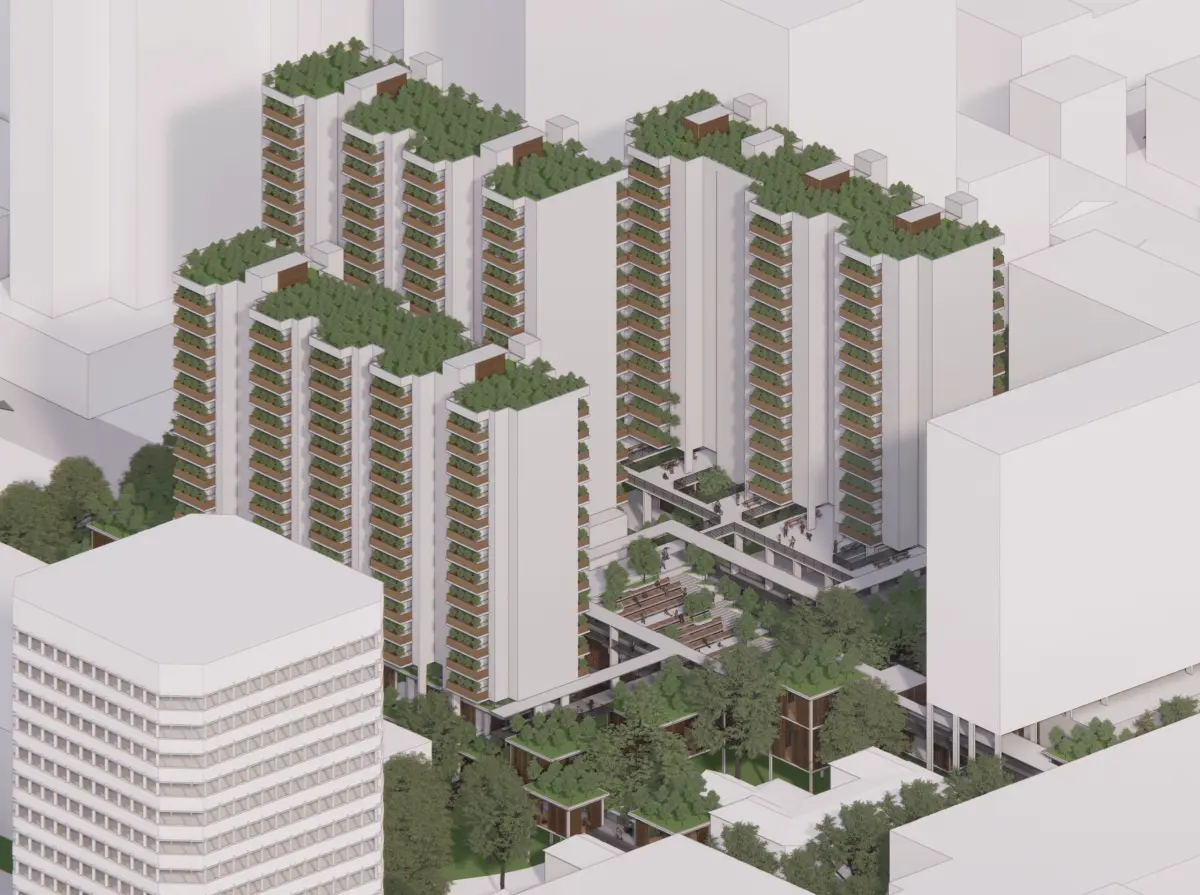
Integrative Greening @ Waterloo Street
BY Lim Wen Jie
SUPERVISED BY Adj. Assoc. Prof. Teh Joo Heng
STUDIO THEME TERRAIN VAGUE: NEW TRANSFORMATION POSSIBILITIES
Abstract
In the quest for urbanisation, Singapore has cleared massive areas of primary and secondary forest, leaving us with fragmented nature reserves scattered around the country. We reaped the benefits of deforestation while nature bore the cost of it, benefitting 100% of residents who now reside in urban areas. While there are indeed benefits of urbanisation to humans, many has come to a common consensus that our actions have drastically impacted our ecology negatively. High carbon footprint per capita, high urban heat island effect, and loss of vegetation are just one of the many negative by-products of our actions. The Singapore Green Plan 2030 was formulated to reverse the consequences of our actions through focusing on sustainable development and long-term net zero emissions. Planting of trees, allocating more green spaces, and implementing innovation green solutions and systems to buildings to lower our carbon footprint are some strategies to reverse consequences of our actions. However, there are limitations and scepticism to the success of our green plan. There are many built up areas in Singapore with low biomass, meaning that there is a lack of greenery in the area. Singapore plans to allocate 9% of our land area for parks and nature reserves by 2030, which means that the remaining 91% of our land area is still fully urbanised. With the correct strategies, the 91% urbanised area have the potential to transform into a green hub. With the various stakeholders present in many areas in Singapore, a form of integrative greening approach could be adopted, creating interactions between stakeholders and nature, creating new planting strategies through architecture and community engagement. This thesis proposes the possibility of greening dense urban area of Waterloo Street as a testbed, creating various cojoined spaces between human and nature, and if successful, be propagated to other parts of Singapore. This increased intimacy between urban and nature could allow us to experience the numerous benefits of constantly being in a microclimate created by nature. This thesis idea strives to give back as much ‘land’ to nature as possible, where humans can learn to give up certain areas in exchange for a new way of life in a green-filled environment alongside nature in a new eco-centric city model.
Supervisor Comments
This thesis is ambitious. Instead of abiding by the norms of vertical greening the city, Wen Jie attempts to “reforest” the city. Many interesting issues were uncovered in the research such as the micro-climatic benefit of reforestation in a densely built physical environment, the lack of technical know-how to introduce a forest and its ecosystem to the city, and wildlife-human conflict. This thesis opens new areas of research and possible alternative solutions to our current city form.
- Adj. Assoc. Prof. Teh Joo Heng